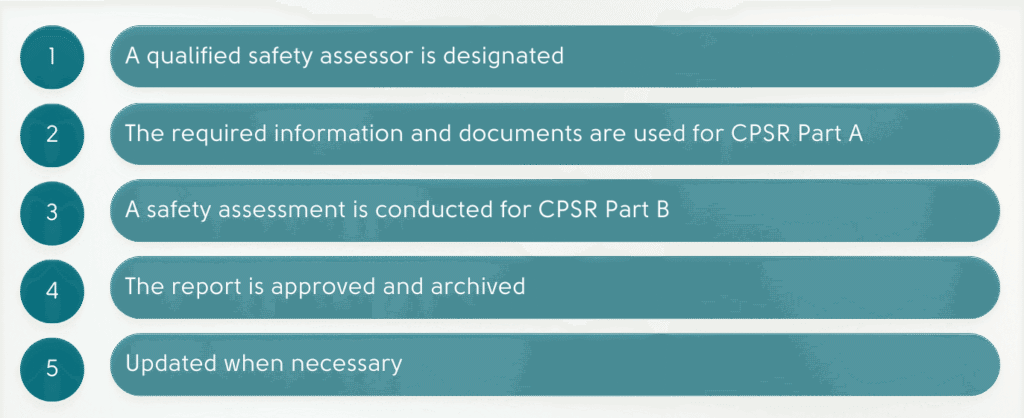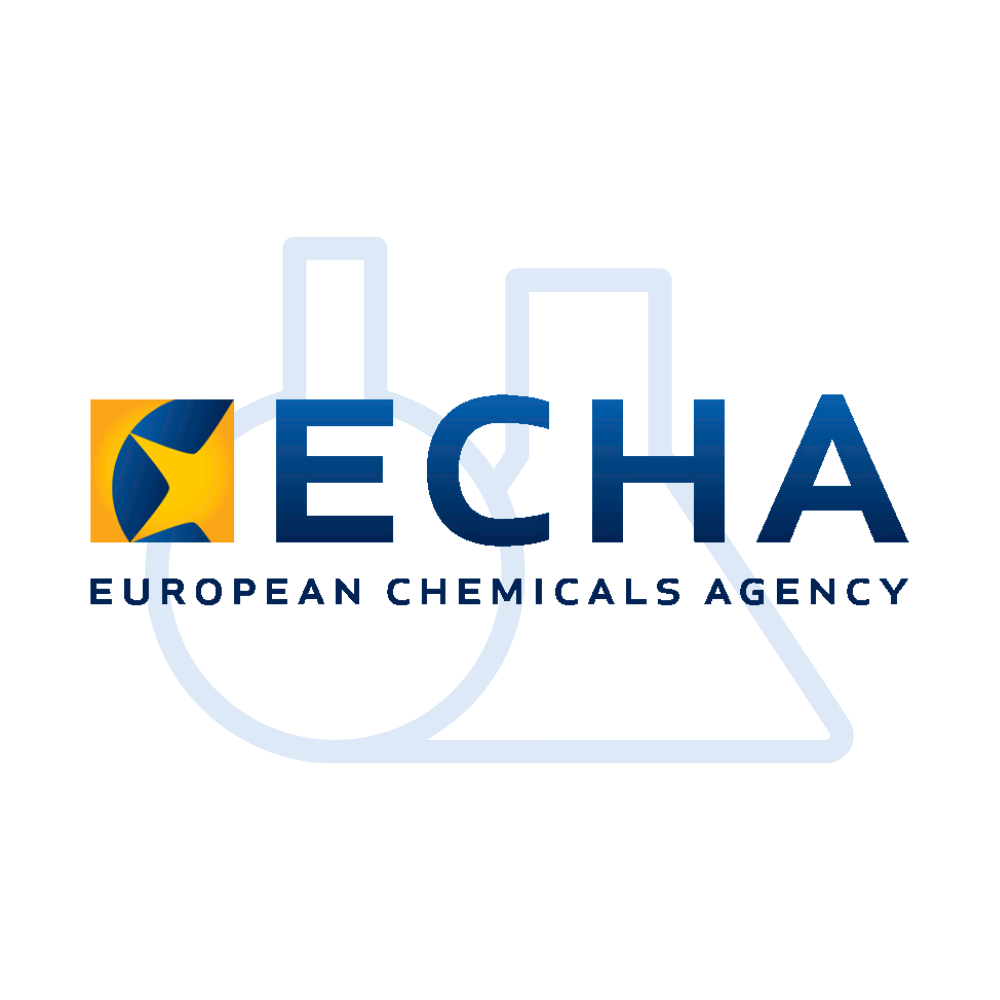What is CPSR in the EU?
In the European Union, CPSR stands for Cosmetic Product Safety Report. It is a mandatory document required for all cosmetic products placed on the EU market under the EU Cosmetics Regulation (EC) No 1223/2009.
Chemleg’s CPSR Service ensures that your product complies with EU regulations, facilitating safe and lawful market access.
How is CPSR prepared?
The first step in preparing a CPSR is the appointment of a qualified safety assessor. This person must be a professional with a university degree in pharmacy, toxicology, medicine, or a similar field, and must possess proven expertise in cosmetic product safety.
The assessor prepares the CPSR (Cosmetic Product Safety Report) in two parts, which are then submitted for approval. The stages of CPSR preparation are illustrated in the diagram below:

The two main parts of a CPSR include the following information:
Part A – Safety Information (Data Collection)
- Quantitative & Qualitative Composition – Full ingredient list with exact concentrations
- Toxicological Profile – Hazard analysis of each ingredient
- Analysis of Impurities and Trace Substances
- Microbiological Quality and Preservation Efficacy
- Exposure Assessment – Evaluation of expected use and contact with the skin
- Stability Testing Results – Evidence of product stability over time
Part B – Safety Assessment
- Risk Assessment
- Regulatory Compliance Check
- Conclusion and Justification
- Label Warnings and Instructions for Use
- Safety Assessor’s Credentials and Signature
Consequences of a Non-Compliant CPSR
A non-compliant CPSR (Cosmetic Product Safety Report) can lead to the rejection of your product at EU borders. Additional consequences include:
- Administrative Fines: Member States must impose effective, proportionate, and dissuasive penalties for violations of the Regulation.
- Product Withdrawal/Recall: If authorities detect a non-compliant CPSR, they may remove the corresponding product from the market. In serious cases, especially where human health is at risk, the product may be subject to a full recall. It may also be denied free circulation across the EU.
- Loss of Reputation and Trust: Non-compliance can severely damage brand reputation and erode trust among consumers, retailers, and business partners. Information on non-compliant products can be published in public databases like RAPEX.
- Criminal Penalties: In some Member States, placing harmful cosmetic products on the market may lead to criminal sanctions, including imprisonment.
- Supply Chain Disruption: Customs holds, denied market entry, and logistical delays due to non-compliance can cause significant storage and warehousing costs.
- Ongoing Inspections: Following a detected non-compliance, the Responsible Person and the product may be subjected to increased scrutiny and more frequent inspections, resulting in operational and financial burdens.
Prepare Your CPSR with Chemleg
With certified EU safety assessors, Chemleg offers fast and reliable service to help you gain smooth access to the market. Our CPSR service includes:
- Comprehensive Safety Assessment by a certified EU-qualified safety assessor
- Ingredient Compliance Check with the Annexes of Regulation (EC) No 1223/2009
- Toxicological Data Review for all raw materials
- Exposure and Risk Assessment based on intended product use
- Regulatory Support to ensure full EU compliance
Get in touch with our experts today by completing the contact form and begin the process.
Frequently Asked Questions
How much does a CPSR cost?
The cost of a CPSR in the EU varies based on the complexity of your product, the number of raw materials, required lab testing, and the pricing policy of your chosen assessor. Simple products may cost a few hundred euros, while complex ones may go into the thousands. Note: laboratory testing fees are typically not included.
Do I need a CPSR?
Yes. If you wish to place any cosmetic product on the EU market, a CPSR is mandatory under Regulation (EC) No 1223/2009.
How long is a CPSR valid?
A CPSR does not have an official expiry date. However, it must remain accurate and up to date. Continuous compliance is required.
Who can prepare a CPSR?
A CPSR must be prepared by a qualified safety assessor with a university degree in pharmacy, toxicology, medicine, or a related field. Typically, consultancy firms or toxicologists with proven qualifications handle CPSR preparation.
When should a CPSR be updated?
CPSRs must be updated if:
- The formulation of the product changes
- There is a change in raw material suppliers
- New toxicological or scientific data becomes available
- Regulatory changes affect your product
- The product’s intended use or target consumer group changes
- Serious Undesirable Effects (SUE) are reported







